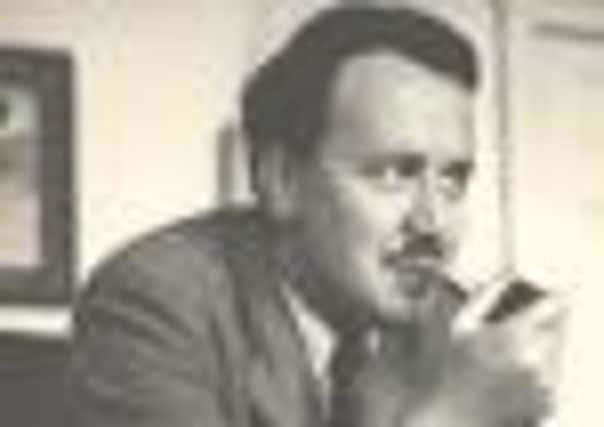Row as Gaelic poet Sorley MacLean’s cut lines reappear


The new edition of Mac-Lean’s work includes 28 poems and nearly 1,000 lines of poetry that have never been published before.
It also contains lines he cut out from his poems, either because of shifting political views or because of his own strict editing practices.
Advertisement
Hide AdMacLean, who grew up on the island of Raasay and became well known for his wide-ranging Gaelic writing, was notoriously hard on his own work.
In one poem, references to the Soviet dictator Josef Stalin were excised despite MacLean’s lifelong sympathy for communism. It is believed he made the changes after disapproving of the Soviet invasion of Hungary in 1956.
The previous “authorised” version of MacLean’s works is From Wood To Ridge / O Choille Gu Bearradh, which MacLean himself approved and was published in 1989 before his death.
Emma Dymock, who alongside Christopher Whyte edited the new collection, said: “While From Wood To Ridge was, and still is, a very important book in its own right, it is perhaps time to remind people that there is more to MacLean’s work than what he presented himself back in 1989.”
But the new version will renew debate over whether writers’ works should be tampered with after their deaths. Joy Hendry, editor of Scottish literary magazine Chapman, which published MacLean’s masterpiece, the poem An Cuilithionn – The Cuillin – in 1987, is concerned that the new edition publishes a different version of the poem, which is 415 lines longer, and which Mac-Lean would not have wanted made public.
“Sorley was always ‘not quite finished,’ ” she said. “He practically wouldn’t let me get my hands on [the poem]. I’m 100 per cent sure that what we published was what he wanted – he was assiduously and intently checking it, and he was adamant about the final version. In fact, he spoke with me about the ‘shortcomings’ of the poem”.
Advertisement
Hide AdMacLean himself said the version of the poem published in 1987 was “what I think tolerable of it”. But Dymock believes the section was only left out because the Gaelic verses were not readily translatable into English.
MacLean, born 100 years ago this year, died in 1996. During the 1940s he was a passionate Stalinist, and his work often took a political stance, covering topics as diverse as the Highland clearances and the Rwandan genocide.
Advertisement
Hide AdThe most significant changes between the two editions show MacLean’s changing commitment to communism and its leaders. The original version of poem XVIII, in his debut book Dàin Do Eimhir, contains the line “as brave as Dimitrov [the Hungarian communist charged with setting fire to the German Reichstag in 1933], as wise as Stalin”. It was later taken out.
Dymock defended putting the line back in. “I feel it would be a mistake to view his socialism/communism as a ‘phase’ he went through in his younger days,” she said.
“But this is often in danger of happening when his poetry is presented out of context or his best-known poems are continually discussed at the expense of his other work. Certainly, the impression I get from looking at this book as a whole is that his belief in the value of socialism did not change much over the years.”
MacLean himself said, in 1942, that some of the poems “formerly pleased me well enough, now fill me with shame and disgust”, and asked his first publisher to burn copies of them. One poem, Mhag Mo Reusan, includes four extra lines which, translated, read: “You, Sorley, are the laughing stock / more than any animal or man / given that your balls / tripped up your intelligence”. It is believed he wanted them taken out because of the coarseness of the sentiment.
Gaelic poet Kevin MacNeil said the new version will put MacLean’s views in a new light, as they reveal emotions not always present in his previously published work.
“In the previously unpublished poems there is violence and bitterness, pity and revulsion – often elevated to an exquisite pitch of wounded eloquence,” he said. “MacLean’s self-shaped ‘biographical legend’ might not stand up to scrutiny in the way he intended, but his status as a major European poet is never in doubt.”
Advertisement
Hide AdOther writers whose work has been changed without their permission include William Shakespeare, whose sonnets were published without his say in 1609. Many academics consider it unlikely that the bard would have wanted many of his deeply personal poems revealed to the outside world.
Children’s writer Enid Blyton, meanwhile, had a number of her books, including the Noddy series, made more “politically correct” for modern day audiences.
And a new edition of Homer’s The Iliad, translated by Stephen Mitchell, caused controversy for cutting out swathes of the epic poem, including a whole chapter and many adjectives and epithets.